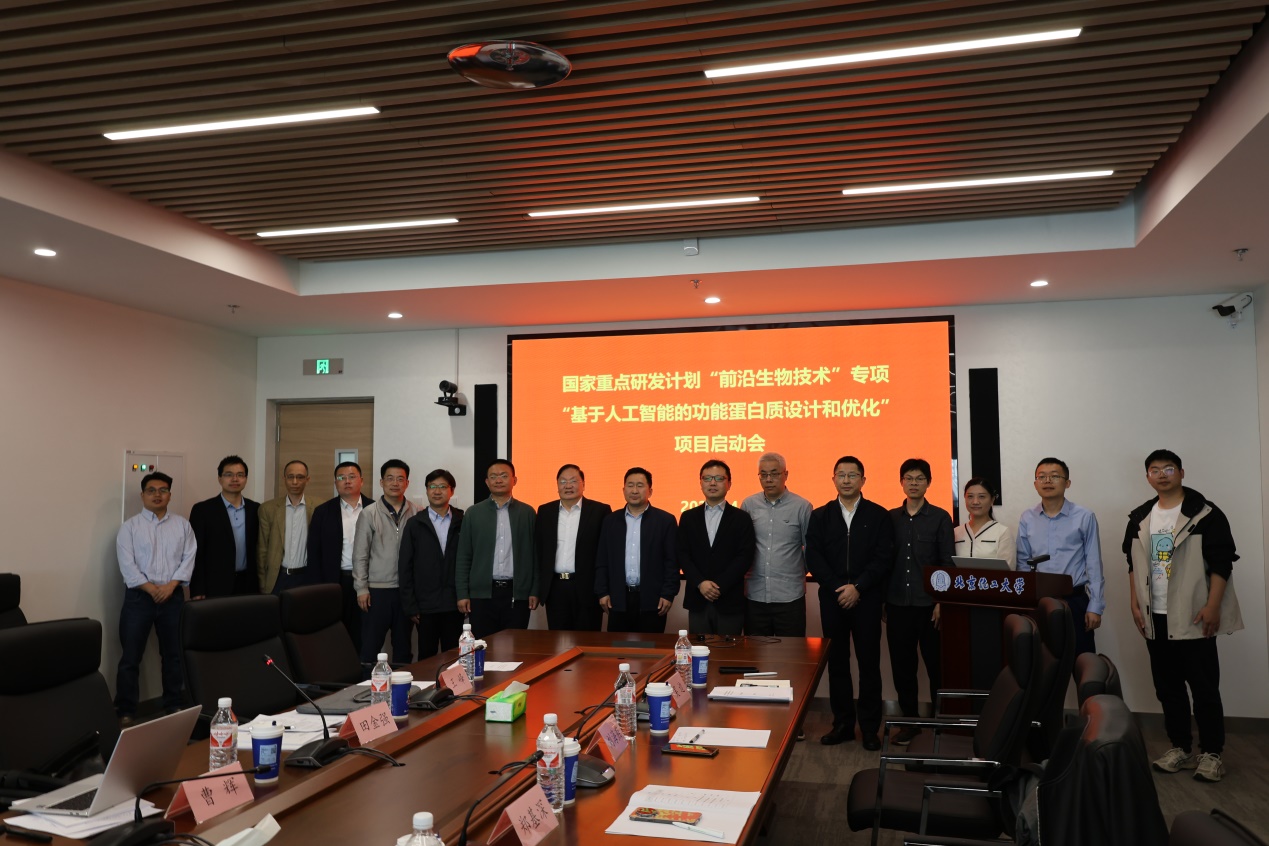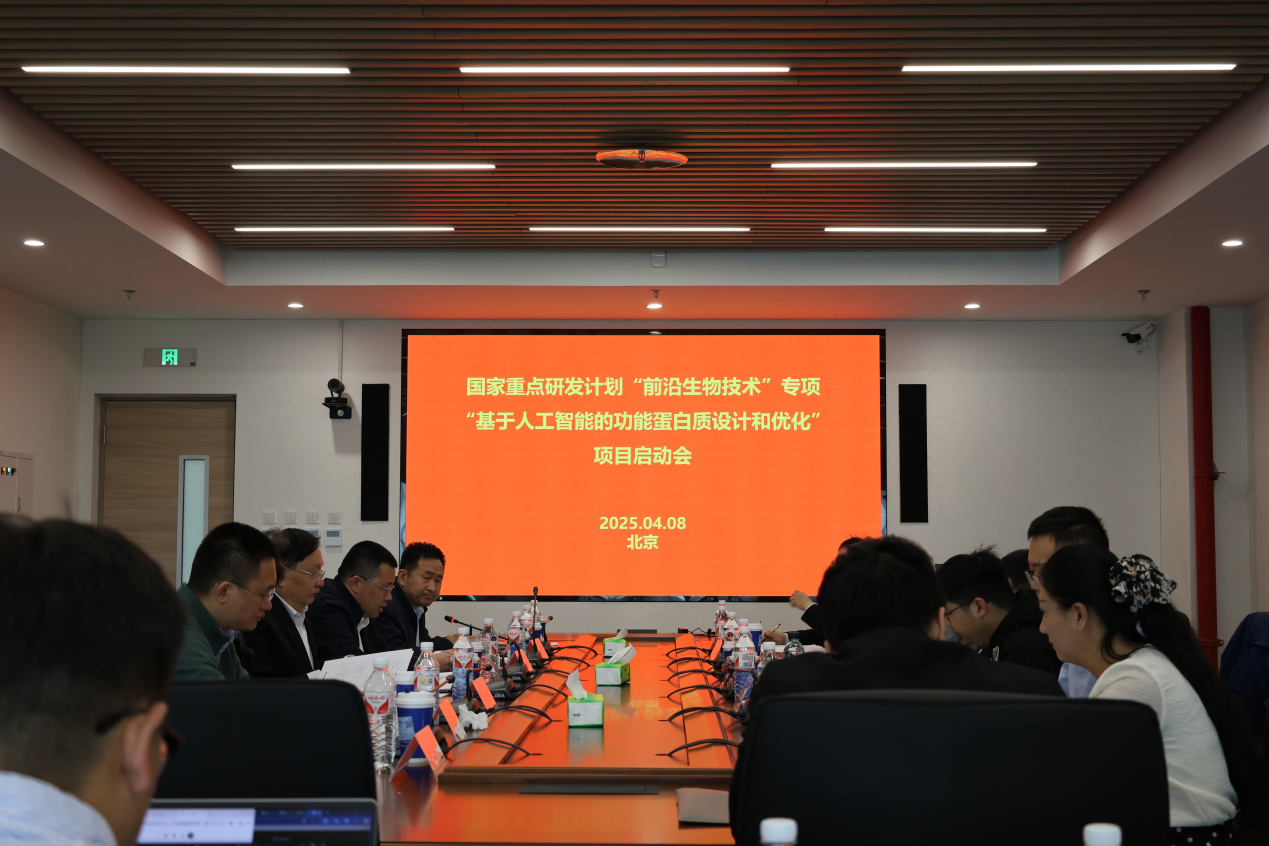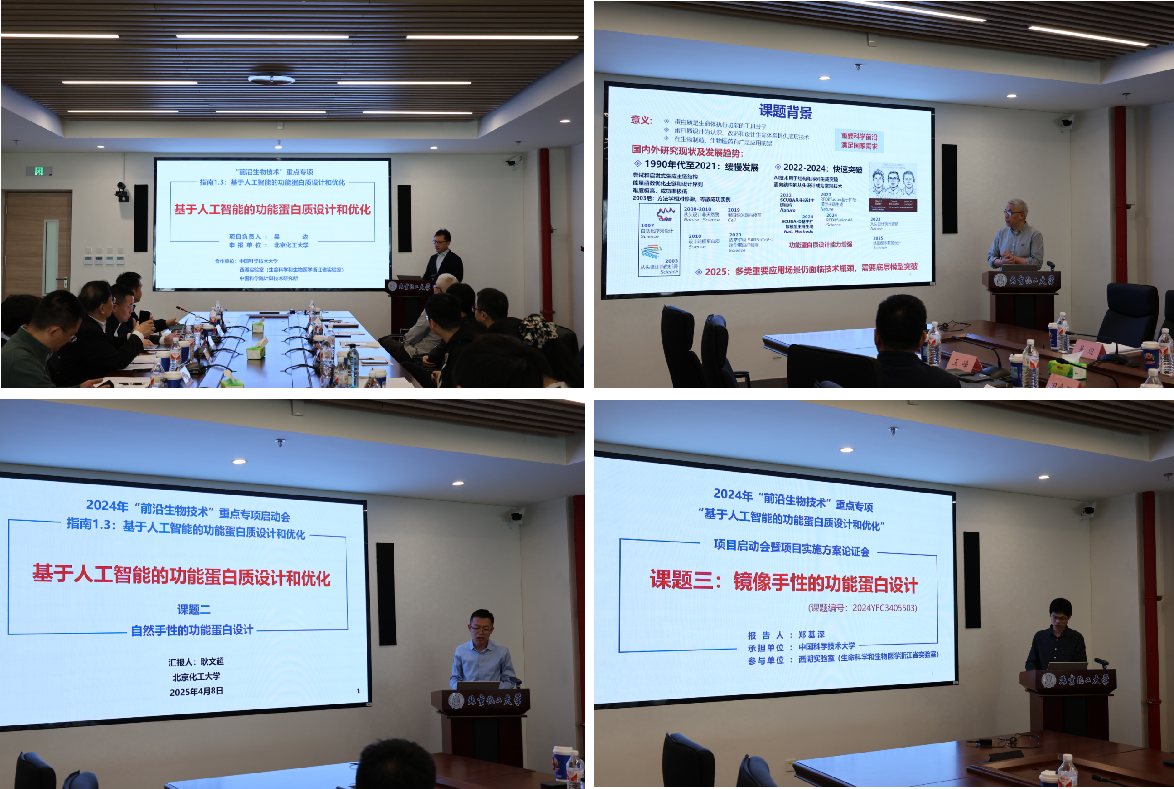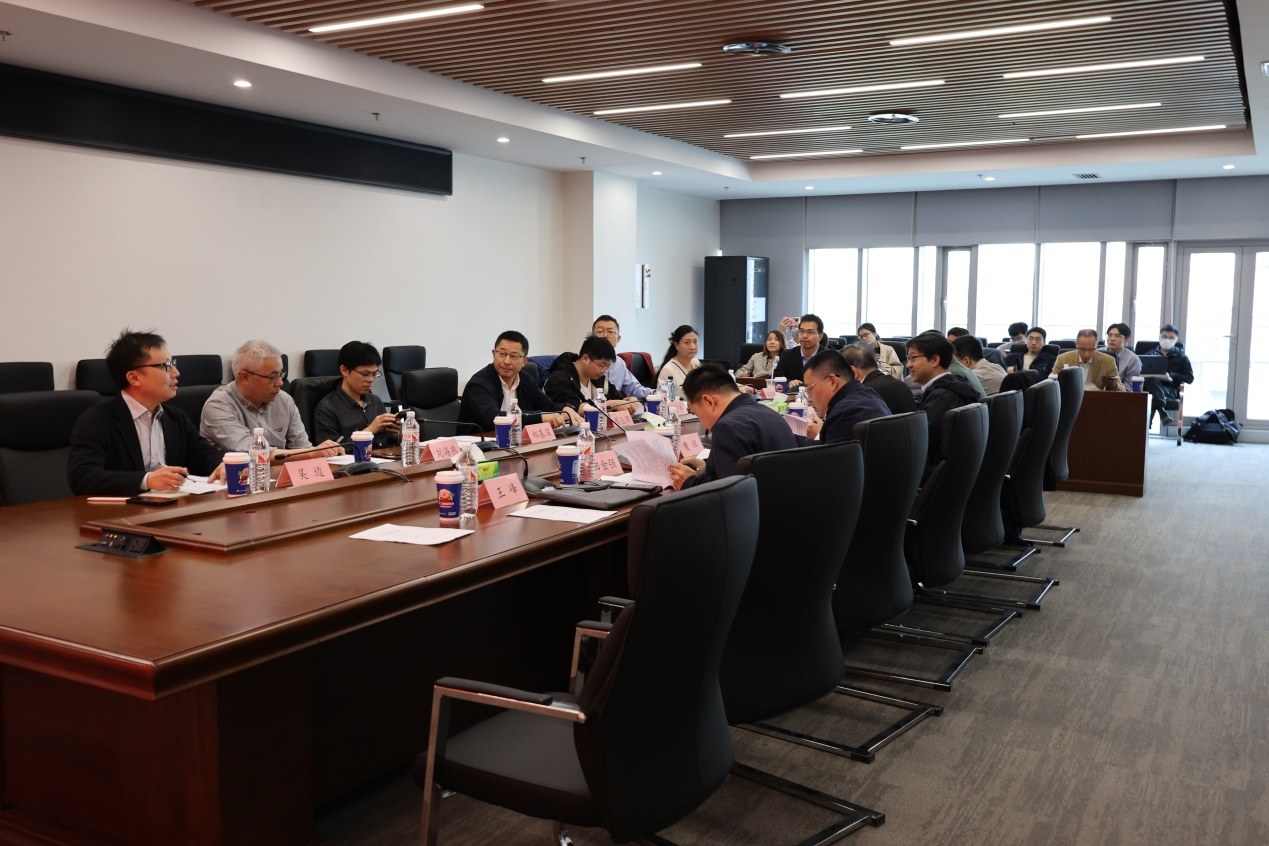On April 8, 2025, the kick-off meeting of the project “Functional Protein Design and Optimization Based on Artificial Intelligence”, which was approved by the National Key Research and Development Program “Frontier Biotechnology” of China under the auspices of Prof. Wu Bian of the School of Life Science and Technology of Beijing University of Chemical Technology, was held at Chaoyang Campus of Beijing University of Chemical Technology. Chaoyang Campus of Beijing University of Chemical Technology. The project is led by Beijing University of Chemical Technology and jointly undertaken by University of Science and Technology of China, Westlake University, Institute of Computing Technology of Chinese Academy of Sciences and other advantageous units.

Tian Jinqiang, Director of Life Science and Frontier Technology Division, China Center for Biotechnology Development, Ministry of Science and Technology (MOST), leader of the project expert group, Prof. Cui Hengmi of Yangzhou University, experts of the project team, Prof. Wang Xiaoyi of Tsinghua University, Prof. Zhang Wenbin of Peking University, Prof. Cui Yinglu of Institute of Microbiology of Chinese Academy of Sciences (IMSC), and Prof. Lu Peilong of Westlake University, the lead unit of the project, Secretary of the Party Committee of School of Life Science and Technology, Beijing University of Chemical Technology (BUCT) Prof. Cao Hui, Prof. Luo Shizhong, Associate Prof. Yang Zhao, Associate Prof. Geng Wenchao, and Lecturer Pei Pengfei, the project participant, Prof. Zhou Congzhao, member of the Standing Committee of the Party Committee of the University of Science and Technology of China (USTC), Vice President of USTC, as well as Prof. Liu Haiyan and Prof. Zheng Jishen of USTC, and postdoctoral fellow of Xihu University, Dr. Sun Ke, and other representatives and cadres of the university, more than 30 people attended the meeting. The meeting was hosted by Prof. Wu Bian.
At the kick-off meeting, Prof. Cao Hui delivered a welcome speech on behalf of the project lead unit to extend a warm welcome to the guests, and expressed his gratitude to the China Biotechnology Development Center of the Ministry of Science and Technology, the University of Science and Technology of China, the University of Westlake, and the participating units for their trust and support. Cao Hui said, as the project leader, Beijing University of Chemical Technology will strictly implement the main responsibility, establish and improve the full-cycle management system, strengthen the resource allocation and process supervision, and effectively guarantee the high quality of project implementation. At the same time, the project team is required to bear the mission of innovation, deepen collaborative research, and strive to form breakthrough results with international influence.

On behalf of the project recommendation department, Mr. Tian Jinqiang, director of the department, made a speech and expressed his warm congratulations to the project lead unit and participating units. Mr. Tian Jinqiang said that Beijing University of Chemical Technology is the key construction institution of “211 Project” and “‘985’ Advantageous Discipline Innovation Platform”, and the national “Double First Class” program. It is a national “double first-class” construction university, shouldering the mission of high-level innovative talents training and basic, forward-looking scientific research as well as original high-tech development. It is of far-reaching significance that the National Key R&D Program focuses on the design and optimization of functional proteins for artificial intelligence, which is a frontier field of science and technology. We hope that the project team will maintain the integrity and rigorous scientific research attitude and team spirit of sincere collaboration, and accelerate the transformation of the results to the ground based on the industrial demand, strictly abide by the red line of financial discipline, standardize the use of funds, and ensure that the project is completed with high quality.
Prof. Wu Bian, the project leader, reported in detail the background of the project, research objectives, research content, technical route, division of labor, assessment indicators, schedule and funding budget, and clarified the project's industrial needs, research direction and implementation plan.

Professor Liu Haiyan, the project leader, introduced the research objectives and technical routes of functional protein backbone generation and sequence design algorithms, focusing on the data-driven protein design methodology and deep learning-based diffusion generation of backbone structure; Associate Professor Geng Wenchao, the backbone of the project, reported on the project's highlights of small molecule-binding proteins and catalytic protein design, and summarized the project's research plan and targets Prof. Zheng Jishen, the leader of the project, elaborated the research background, key scientific issues and technical solutions of mirror image chiral functional protein design, and put forward the innovative ideas of artificial design and functional verification of mirror image proteins.
The panel of experts at the meeting commented on the feasibility of the project implementation program, the technical route, the collaborative efforts of the participating units, and the application of the project results, and highly evaluated the project. The expert group unanimously agreed that the project closely focuses on the national needs and scientific and technological frontiers, focuses on the core issues such as the design and optimization of functional proteins for artificial intelligence, has interdisciplinary and cross-field characteristics, the design of the subject has a related progressive nature, and the expected results are of great significance in promoting the research and development of functional proteins. The experts also put forward constructive comments, suggesting to increase the comparison between the project results and the international mainstream computational software to highlight the advanced nature of the project, and to further strengthen the synergy between the topics to jointly explore the frontiers of protein deformation and mechanism and post-translational modification.
After the kick-off meeting, the project team further discussed around the suggestions made by experts and deployed the next work. The project team will strengthen the cooperation between topics, focus on the main research line, clarify the logical relationship, unify the evaluation criteria, strengthen the exchange of disciplines, innovate the technical methods, form the landmark results, and promote the innovation and development in the field of functional protein design.



